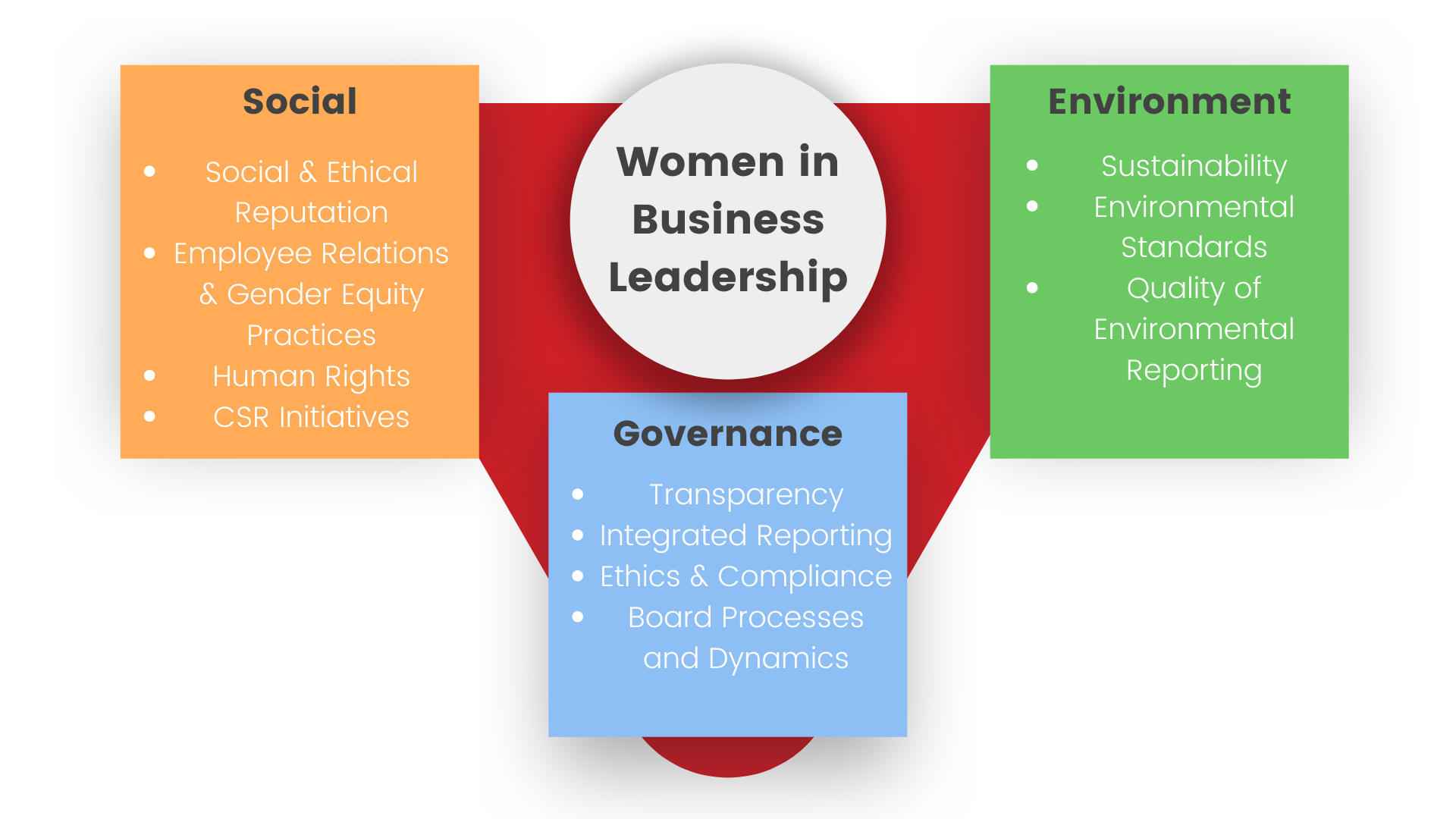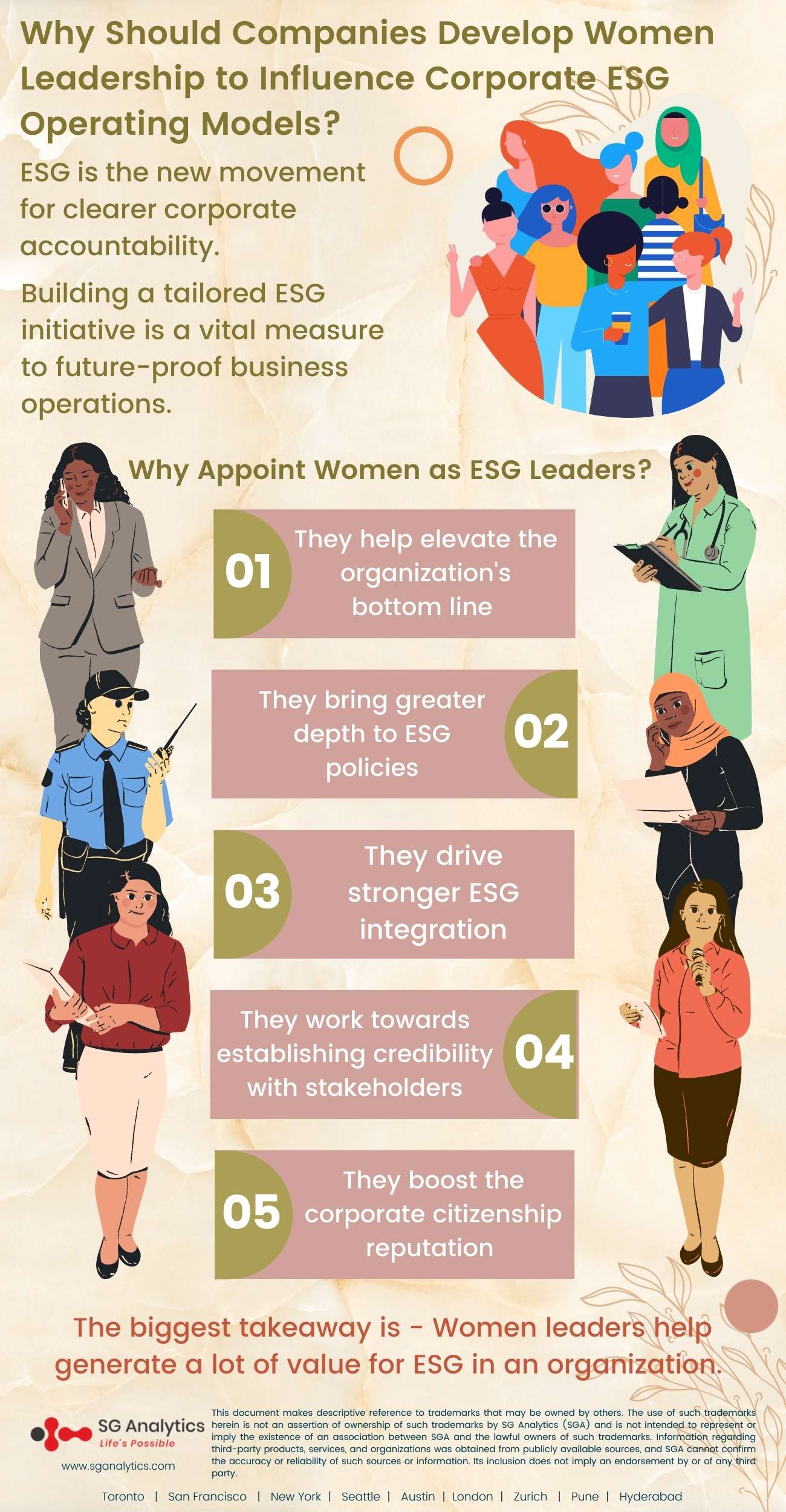A growing tidal wave that is hitting businesses can be summarized as – ESG. The environmental, social, and governance investing movement has not only grabbed the public’s attention but is also rapidly growing on national and international business radars.
ESG, or Environmental, Social, and Governance, is the new movement for clearer corporate accountability in accordance with the growing interest in businesses' environmental and social outcomes. Investors are now considering the risk and value of ESG, as there is a lot of mounting pressure on national and international corporations to incorporate ESG operating models to practice and notify their accountability.
Building a tailored ESG initiative is becoming another measure in future-proofing business operations. But this does not symbolize that it is easy. Successful corporate ESG programs have a lot of shifting pieces, and there is not much room for errors. Companies today are expected to measure and report the ESG impact on their supply chains, general operations, and partners.

Today, women in administration are not only making corporations ready for a net-zero planet but are also impacting the world as thought leaders. Corporates with more women in administration demonstrate a stronger emphasis on the workplace environment and issues, including:
-
gender-equitable hiring practices
-
gender-equitable opportunities for growth
-
women-friendly policies
-
stronger control over organizations’ strategic direction
-
greater emphasis on board development
-
increased transparency and disclosure
The reasons behind the growing influence of women leaders in the ESG space are varied. One of them is the attribute that sustainability requires systems thinking approach. Systems thinking helps place the focus on what is good for the organization, the employees, stakeholders, and the planet. ESG issues influence the entire organization. Onboarding women in leadership helps bring in a deeper acumen of what ESG issues are and how they can impact an organization's value. Establishing an ESG team requires legal experts, internal auditors, technology experts, and communicators. And a commitment to diversity while building this team is not only a critical part of ESG but also an essential component to maximizing success.
Read more: ESG & Sustainability: Shaping the Future of Digitized Procurement Value Chain

Challenges in ESG Planning
It is important to take into consideration the most common hurdles faced by organizations while developing an effective ESG plan. Here are the main challenges-
-
Leadership buy-in:
Before implementing any ESG plan, it is important for the CEO (Chief Executive Officer) to have their business’ top players involved. While ESG falls under the scrutiny of the CFO or Sustainability officer, for a more comprehensive integration, it is imperative for everyone in leadership to be on the same page and follow the same governance standards.
-
Comprehensive strategic goals:
Once the administration is on board, it is time to develop a strategic ESG plan. This plan should be extensive and define clear expectations based on how ESG will augment existing frameworks and anticipate its effect on products, services, and other vital parts of the business.
-
Data collection, analysis, and management:
One apprehensive spot in the current state of ESG is the lack of standardization among ESG disclosures. While many organizations report their performance using diverse techniques and metrics, comparing them can be a challenge. Hence collecting, synthesizing, and reporting data, ensures that businesses stay aware of the trending standards.
-
An inclusive training and communication culture:
With every element of the plan in place, it is time for businesses to start communicating their workforce’s role in the ESG plan and training them. It offers businesses a chance to acclimate their corporate culture and behavior to their ESG principles.
With a strong leader and dedicated team, corporations can create an effective ESG operating model. Let us explore who can be the strong candidates for the leadership.
Read more: Sustainability Tech Innovations that will power 2022

Why Should Corporates Appoint Women as ESG Leaders?
A central issue of ESG is gender equality. Having women represented as ESG decision-makers is key, and corporates consider it. But there is an undeniable value proposition for appointing women as ESG leaders. Here are a few benefits businesses can encounter when women are in charge-
-
They help elevate the organization's bottom line
Research suggests that gender-diverse organizations are 15% more likely to outperform their peers. Organizations in the top quartile for gender diversity are 35% more likely to witness greater profits. With organizations bringing women into the workforce, they are experiencing a wider range of talents, skills, and opinions to draw from. In this way, women in higher corporate ladders are leading ESG to boost the organization's bottom line.
-
They bring greater depth to ESG policies
Based on gender diversity, women tend to hold master’s degrees in sustainability, environmental, or energy-related disciplines like environmental science, engineering, and public policy. This expertise makes them immensely valuable to have at the corporate table.
-
They drive stronger ESG integration
As a consequence of the earlier point, female employees tend to achieve stronger performance during ESG integration. The positive effect of a diverse team on employee engagement helps to build a supportive company culture.
-
They work towards establishing credibility with stakeholders
Stakeholders are becoming increasingly interested in businesses with the rising ESG investment model. Having women lead the ESG team is a great sign that is indicative that organizations are taking gender diversity seriously.
-
They boost the corporate citizenship reputation
Having women lead ESG plans, and strategy helps in building the reputation for good corporate citizenship. This is key, especially when publishing sustainability reports, as investors and customers want to see the "talk" in action, especially when it comes to prioritizing social issues.

Read more: Climate Action Warriors – Top 15 Women Leaders Fighting Climate Change
Let's break down the evidence by highlighting the key findings that connect greater gender diversity and ESG (environmental, social, and governance) dimensions of business operations.
Women in Business Leadership: Environmental Performance
-
Assists in improving environmental performance
-
Offers more extensive environmental reporting
-
Delivers a more effective pursuit of environmentally
-
Supports friendly strategies and initiatives
Women in Business Leadership: Social Performance
Onboarding more female directors are positively associated with:
-
enhanced CSR (Corporate Social Responsibility) practices in emerging markets
-
a stronger commitment to CSR initiatives of the organization
-
higher social performance
-
better employee engagement
-
stronger worker relations and better work-life balance
-
ethical conduct and improved human rights

Women in Business Leadership: Governance
Gender-diverse board leaders are directly associated with enhanced performance. They play a vital role in
-
generating better returns on assets and sales
-
strengthening earnings quality
-
enhancing the firm's culture and value
-
driving ethical and social compliance
-
reducing the incidence of unethical practices
Convergence of Varied Perspectives
Experiences and diverse backgrounds in the boardroom help stimulate more robust debate and discussion, thereby driving richer challenges, decision making, and delivering significant value. A gender-diverse board is less likely to fall into the trap of uncertain conclusions and more likely to drive fundamental questions that will empower the business over the long run. Similarly, a diverse team of administrators in the senior leadership cadre presents a breadth and depth of expertise, thus adding value that stems from different experiences and perspectives.
By boosting the diversity of boards and leadership, corporations can focus on environmental, social, and governance considerations and create more value within the business. Plenty of evidence supports having more women in corporate leadership positions and higher profitability. Women leaders in boardrooms are positively related to profitability measures. The impact of women in senior management positions offers a better long-term financial indicator like profitability, stock price, and shareholder returns.

Conclusion
Gender-diverse business leadership is positively connected to ESG performance, and ESG is associated with enhanced company performance and financial performance.
The key to nurturing a vibrant and sustainable organization is to explore ways to get all employees, from top administrators to assembly line workers, to engage in day-to-day corporate sustainability actions. Corporates with ESG-driven leadership programs are empowering women leaders and entrepreneurs to ignite economic access within the ecosystem and build sustainable practices across their business units.
The biggest takeaway is - Women leaders help generate a lot of value for ESG in an organization. By supporting women administrators as ESG leaders, an organization is investing in the future and success of its business.
With presence in New York, San Francisco, Austin, Seattle, Toronto, London, Zurich, Pune, Bangalore, and Hyderabad, SG Analytics, a pioneer in Research and Analytics, offers tailor-made services to enterprises worldwide.
A leader in ESG Consulting services, SG Analytics offers bespoke sustainability consulting services and research support for informed decision-making. Contact us today if you are in search of an efficient ESG integration and management solution provider to boost your sustainable performance.









